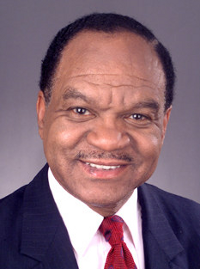Remember how former District of Columbia council member Carol Schwartz threatened to start resisting her federal income taxes over the lack of Congressional representation for people in the district?
Well, that didn’t last long. When tax time rolled around, she backpedaled and paid up.
But since then I’ve found another example or two. First, this one, from , from a woman with a bit more fortitude:
Daisy Harriman Wants Vote For Washingtonians
“Boston Tea Party” Needed, She Says; Cooking Up Scheme
by Alicia Hart
Washington — (NEA) — The days of crusading women suffragists are not yet dead. That is if Daisy Harriman has her way.
A tradition here in the capital, this grand old gal is outraged that the citizens of Washington, both male and female, have no right to vote either in local or national elections. So she’s waging a red hot no-holds campaign to get Congress to rectify this situation.
If going to prison will help the cause, then Mrs. J. Borden Harriman is game. In fact, she’s presently cooking up a scheme that could put her back in the clink any one of these days.
Mrs. Harriman served as U.S. Minister to Norway during the critical years prior to World War Ⅱ. She is a distant cousin of Gov. W. Averell Harriman of New York.
After years of civic and social activity, political squabbles, hair raising experiences and close friendships with the great and near great, she’s in no mood to call it quits. A mere 84, she makes ridiculous the conventional idea that old ladies should stick to their rocking chairs.
Wake Up People
“We’ve got to do something spectacular that will wake people up to the fact that Washington is voteless,” exclaims Mrs. Harriman who is cochairman of the Washington Home Rule Committee and a power behind the drive to give the District of Columbia its own government. “It’s so hard to get anyone excited over it. Why most people in the country don’t even realize we can’t cast a ballot here.”
The best way to dramatize voteless Washington, Mrs. Harriman figures, is to refuse to pay D.C. taxes until something is done. So far, she has persuaded about 10 persons to go along with the plan. They’ll sign a paper notifying officials of their position.
“We need another Boston Tea Party,” she says. “It’s the same situation — taxation without representation. Washington is the only great capital in the free world where the people have absolutely no say as to how their government is run. It’s a disgrace.”
Such a skirmish with the law could put Mrs. Harriman and anyone else behind bars. Some of her more cautious friends have advised against such a step.
“I’d be perfectly willing to go to prison,” she comments as if referring to a coming engagement. “I think it would be fun.”
In she was appointed by President Franklin D. Roosevelt as Minister to Norway. The second woman in U.S. history to take on such a diplomatic post, it seemed to be a harmless spot where a female could hardly gum up international relations.
But Hitler changed that. When the Germans attacked Norway in , she was on the spot, and her dispatch to the State Department sounded the alarm. Then 70, she stuck out air raids until finally forced to flee to Sweden with the Nazi armies close behind.
She has also been through plenty of political battles and is a staunch Democrat ever since taking up the banner for Woodrow Wilson in . Soon after his election, she was made the only woman member of the Federal Industrial Relations Commission.
Perhaps Daisy Harriman’s Sunday evening suppers won her the greatest fame, especially in Washington circles. Here again, there were fireworks. New Dealers and right wingers from the ranks of Congress, the newspaper business and government were placed side by side at her table.
Then she’d throw out for conversation a sizzling topic of the day. When her guests got too hot under the collar, she could always cool them off with one sentence. It was: “Isn’t this all great fun?”
The District of Columbia finally got its own, locally-elected government in , though it is subject to whatever arbitrary mandates Congress decides to throw over it from time to time, and it has turned out to be a particularly crappy government. The residents of the district still have no full-fledged Congressional representation.
In , the non-voting District delegate to Congress, Walter E. Fauntroy…
That would risk penalties including imprisonment. “Those of us who have decided to take this action are prepared to accept those consequences,” Fauntroy said .
According to the Los Angeles Times:
Fauntroy… asked city residents to file federal tax returns but withhold payment of federal taxes and place the money in an escrow account to be established by a group called “Taxation Without Representation Committee.”
Fauntroy vowed to continue the protest until a D.C. statehood bill is passed by Congress. The bill, considered a long shot to pass, would make the city a state and give city residents their first voting representation in Congress — two senators and one member of the House.
“Like all Americans, the people of Washington, D.C., are not different when it comes to sharing the burden of taxation,” Fauntroy said. “Indeed, district residents pay more taxes per capita than the residents of every state in the union except one, Alaska.”
He said all records of tax returns and payments would be sealed, and he hopes to get $1 million in unpaid taxes into the account.
Jan Eichhorn, a longtime statehood activist who plans to withhold her federal tax payment, said the protest could affect the struggle for statehood.
“The only way we’re going to get statehood is the way we got home rule: by appealing to the voters of other states,” said Eichhorn, a D.C. government employee. “If this is organized well, it can have an impact.” Fauntroy, who for several years has waged an unsuccessful effort to achieve statehood for the district, said he would like to see $1 million in withheld tax payments made to the corporation. He first began planning the protest late last year.
To preserve taxpayer confidentiality, data about individual contributions to the fund would be sealed, Fauntroy said. He added that James M. Christian, a lawyer with the firm of Laxalt and Washington, had offered legal assistance to participants in the Fauntroy plan.
Fauntroy said the tax protest “will heighten the moral impropriety” of the district not having statehood and “prick the conscience” of those in Congress and other parts of the country who oppose statehood.



